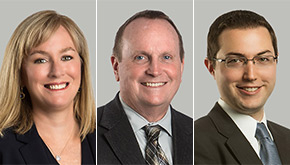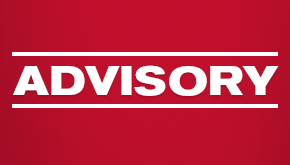More Rigorous Standards for Admissibility of Expert Witness Testimony in Missouri
On March 28, 2017, Missouri Gov. Eric Greitens signed into law a bill that establishes more stringent parameters for what constitutes admissible expert witness testimony in the state’s courts. The new law is closely modeled after the Daubert standard – named for a seminal 1993 United States Supreme Court case – and the Federal Rules of Evidence, which are currently applied by federal courts to assess the admissibility of expert testimony. A large majority of states have already adopted expert witness laws similar to the federal standard.
The new law provides that in order for a witness to offer his or her expert opinions in a Missouri state court action, the following prerequisites must be satisfied:
- The expert witness must qualify as an expert on the basis of his or her knowledge, skill, experience, training, or education.
- The expert’s specialized knowledge must help the trier of fact understand the evidence or determine a fact at issue.
- The expert’s testimony must be based on sufficient facts or data.
- The expert’s testimony must be the product of reliable principles and methods.
- The expert witness must have reliably applied the principles and methods to the facts of the case.
Prior to this new law, Missouri courts would admit expert testimony to assist the trier of fact if the party offering the testimony could establish that the expert was qualified and the facts or data relied upon by the expert were generally accepted in that expert’s professional community and were reasonably reliable.
This new law specifically changes the previous law’s “reasonably reliable” standard for the principles upon which expert testimony is based. Under the new standard, trial courts will be required to evaluate in stricter detail the reliability of the methodology and principles employed by experts prior to admitting testimony into evidence. Missouri courts will likely implement the following fact-intensive Daubert factors to assess whether an expert’s methodology or principles are reliable: (1) whether the methodology or principle can be and has been tested; (2) whether it has been subjected to peer review and publication; (3) its known or potential error rate; (4) the existence and maintenance of standards controlling its operation; and (5) whether it has attracted widespread acceptance within a relevant scientific community.
The signing of this law is part of a larger trend toward tort reform in the state, which has gained momentum since Greitens’ inauguration. The current legislative session continues through May 12, 2017, and it is likely that additional tort reform measures will be sent to the governor’s desk for signing before the end of the session.
The new law will take effect on Aug. 28, 2017.
What This Means for You
This change in the law will require plaintiffs to evaluate the strength of their experts prior to initiating litigation and will prevent plaintiffs from forum shopping within the state.
While the new law does not specifically provide a right to hearing on challenges to expert testimony, it is likely that the number of motions and hearings to exclude expert testimony will increase with its implementation. Members of the state legislature argued against the law on the basis that these hearings will clog state court dockets and deplete judicial resources; however, it is more likely that challenges to expert testimony and subsequent rulings during the pre-trial phase will lead to the timely resolution of cases and reduce the number of state court trials involving questionable expert evidence.
Overall, the law will likely decrease frivolous lawsuit filings and increase the quality of expert testimony proffered across the state. Further, state-court defendants will no longer be required to defend against claims that lack reliable scientific support.


































